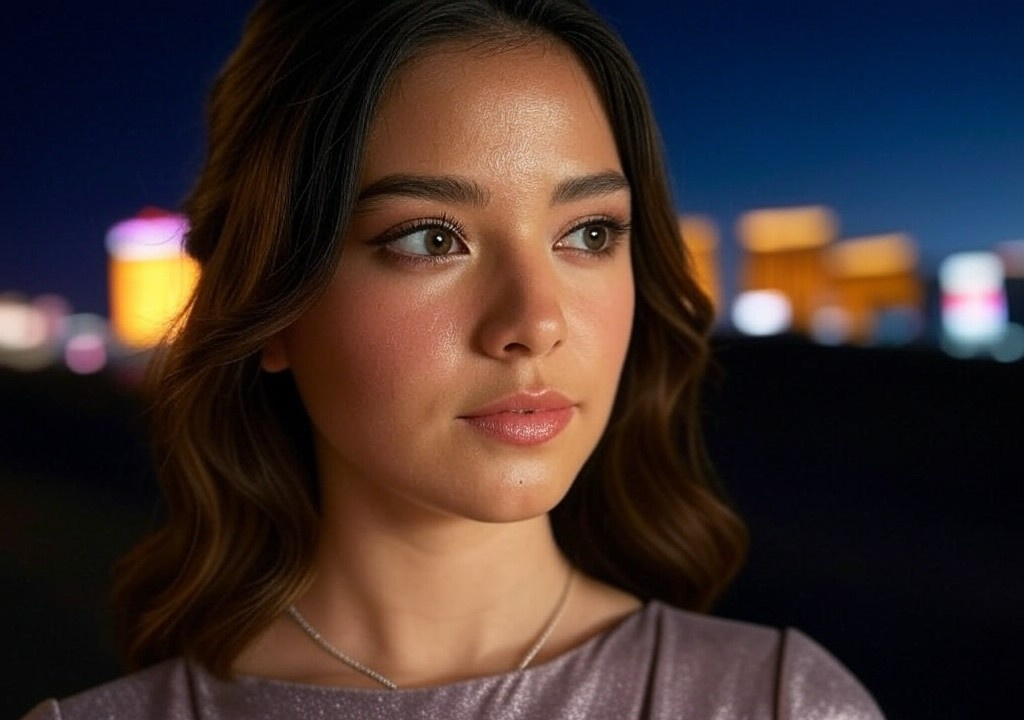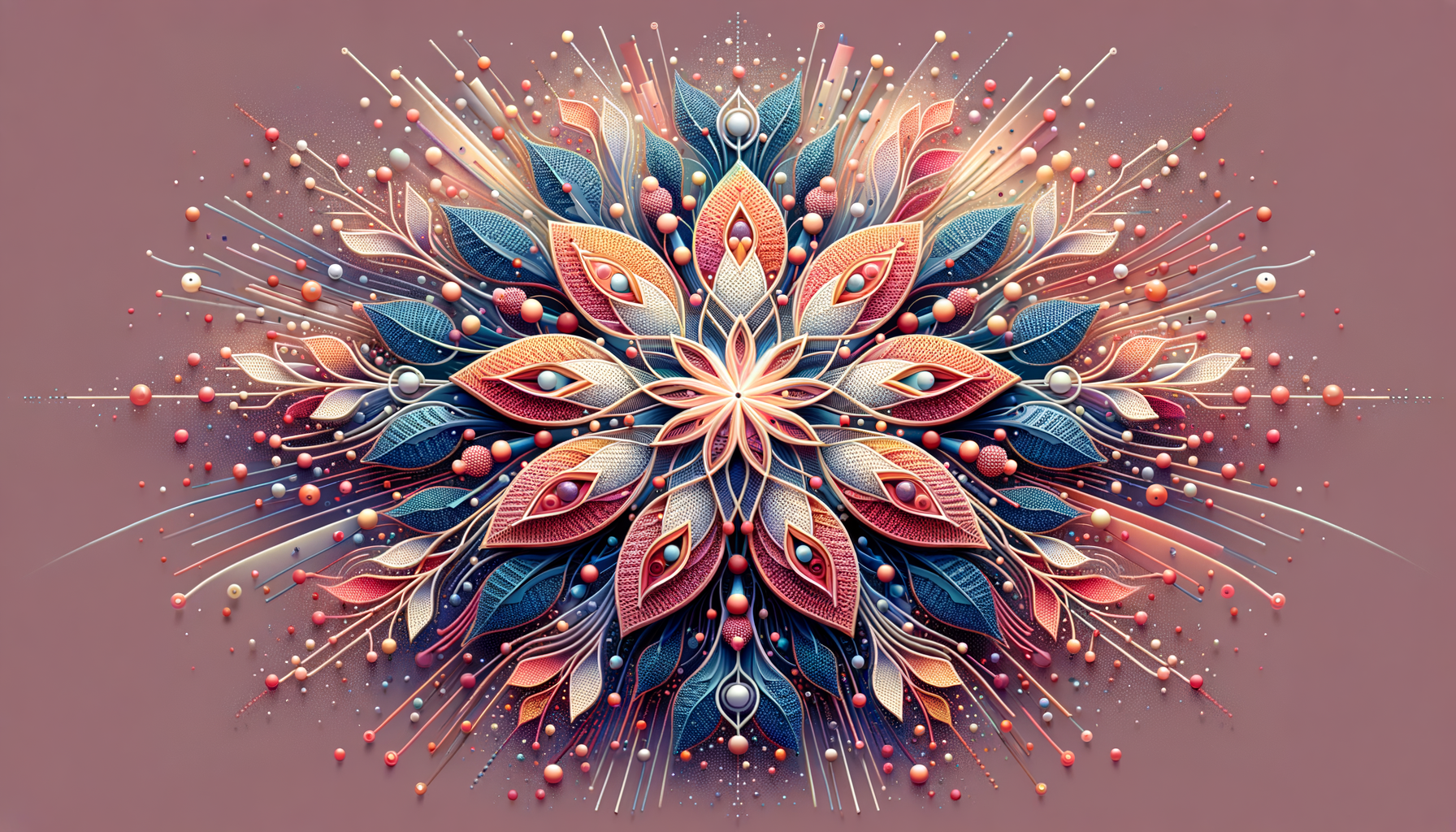The Fear I Conquered: Embracing Vulnerability Under the Lights
The Neon-Splashed Problem with Perfection
I grew up surrounded by sequins, strobe lights, and choreography so polished you’d swear the dancers practiced in their sleep. Las Vegas isn’t just my hometown—it’s a masterclass in concealing imperfections. My parents were part of the showbiz engine; my dad worked backstage, and my mom designed glimmering, gravity-defying costumes that transformed humans into gods and goddesses nightly. The lesson I absorbed from all this spectacle boiled down to this: the biggest sin wasn’t failure—it was showing anyone you had cracks in the façade.
For most of my life, vulnerability felt scarier than trying to cross the busy Strip in five-inch heels. Fear wasn’t just an occasional whisper in the back of my mind; it was the full Vegas production, lights and all, reminding me to play it safe, stay guarded, and keep my soft spots hidden. But here’s a truth they don’t teach you under the spotlight: vulnerability isn’t a weakness, and perfection is a myth that looks better from the fourth row back.
Stage Fright, But Make It Emotional
It wasn’t one specific moment that sparked my fear of vulnerability—more like thousands of tiny ones strung together like the blinking lights of Fremont Street. Imagine telling someone, “Hey, I kinda like you,” only to watch their face morph into that awkward half-smile/polite nod combo as they figure out how to let you down easy. Or imagine pouring your heart out to a friend about something you’re struggling with, and suddenly you’re their emotional roadkill under layers of “advice” you didn’t ask for. Ouch, right?
I built sturdy walls. I smiled, nodded at the right moments, and kept everything real locked away where it couldn’t spill out. I mean, if no one saw the mess inside me, no one could reject me, right? This strategy worked for a while—if “worked” means stumbling through relationships (and friendships) that felt about as deep as a game of blackjack.
But the thing about fear is it doesn’t want to hang out in just one part of your life. What started as a shield in romantic relationships started bleeding everywhere else. I avoided job opportunities because I worried about being judged. I played it cool with my close friends because sharing too much of myself felt risky. Even while writing my novel, I held back, worried readers would see too much of the real me reflected in the story. It was like living in one of those smoky Vegas lounges—dim, safe, and far from clear.
My High-Stakes Gamble
Flashback to two years ago: A close friend invited me to one of those artsy storytelling events where you stand on a stage and bare your soul to a roomful of strangers. You know, for fun. Naturally, I declined faster than a rigged slot machine. The thought of speaking about anything real in front of an audience made my palms sweat. But my friend—a persistent and deeply annoying kind of angel—didn’t let up. “Aurora,” she said, “vulnerability is your jackpot.” (I hated that she knew me well enough to say this.)
After several rounds of protests and one margarita too many, I agreed. My knees had regrets the second they carried me onto that stage under blinding house lights. I clutched the mic stand like a nervous game show contestant and told a story I’d never even whispered to a diary: the one about my first big heartbreak—a whimsical, doomed romance that collapsed faster than the set change on my dad’s old production stages. I confessed how crushed I’d been, how long I’d avoided intimacy after it, and how hard it was to let myself hope for love again.
And you know what happened? No tomatoes flew from the crowd. No one sat me down afterward to tell me what a mess I was. My voice cracked, sure, and at least two people definitely noticed my trembling hands—but they also cheered when I finished. They clapped not because my story was polished or perfect but because it was real.
The Baby Steps that Changed the Game
Standing on that stage didn’t immediately cure me of my fear of vulnerability. But it planted a seed—proof that being genuine, messy, and human didn’t lead to the type of spectacular rejection I’d always expected. Here’s how I slowly lifted the curtain on my fear and made peace with it:
1. Get Real About Why You Hide
I had to ask myself some tough questions. Why did I cringe at emotional honesty? What was I afraid would happen if people saw the “real” me? Spoiler: Most of my answers were based on assumptions I had zero evidence for. When I questioned my fear, it lost some power.
2. Start Small—but Meaningful
I didn’t dive straight into spilling my deepest secrets. Vulnerability is a trust fall—it’s okay to start with baby steps. Telling a close friend something I worried might sound “silly” or opening up about a mild fear felt doable. Each time I wasn’t ridiculed, I gained confidence.
3. Reframe Failure
My hometown loves a comeback story, and I’ve come to see failures or awkward moments through the same lens. If someone doesn’t react the way you hope, that doesn’t mean it’s the end of your chapter—it’s just character development.
4. Find Your People
Let’s face it, not everyone is worthy of our most vulnerable selves. Just like Vegas has its fair share of knockoffs (those “Rolexes” on street corners, anyone?), not everyone you meet is authentic. Surround yourself with people who celebrate your complexity and leave the poker faces for card tables.
5. Laugh It Off
One thing about being vulnerable? It can be incredibly awkward. I’ve learned to make peace with the cringe moments by laughing at them. Humor, after all, is its own kind of armor—and it happens to be way lighter than walls of emotional stone.
Collecting My Winnings
Let me be clear: Life isn’t a 24-hour show tune where we’re all magically out here living our most vulnerable, radiant truths. Some days, I still want to retreat into the comfortable shadows, trading deep connections for shallow conversations. But I’ve seen the light—literally, in the form of brutal Vegas sunrises—and I’d rather live in it now, even if it means showing my flaws.
Vulnerability doesn’t promise a jackpot every time, but it offers something better: the chance to live authentically, scars and all. If you’re like me—figuring life out one shaky step at a time—know this: the risk is worth taking. Whether it’s onstage or simply unmasking in a conversation, leaning into vulnerability feels a lot like winning. And maybe, just maybe, the house doesn’t always win after all.




















